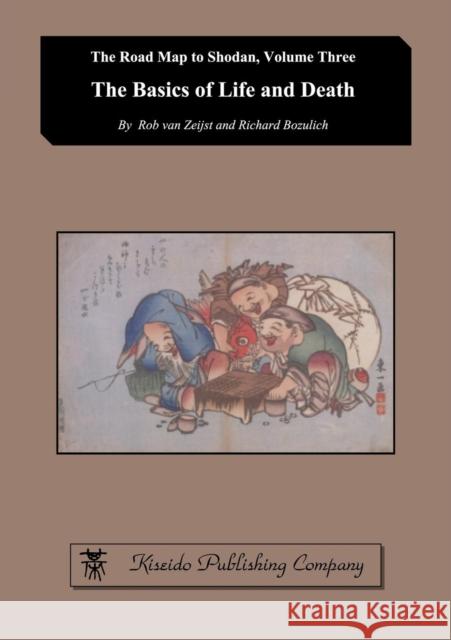The Basics of Life and Death » książka
The Basics of Life and Death
ISBN-13: 9784906574841 / Angielski / Miękka / 2016 / 240 str.
This book is the third volume of the series The Road Map to
Shodan. Part One is intended as an introduction to the topic of life and
death, aimed at players who have just learned the rules. However, it should
also be useful for players up to 5-kyu or for any amateur player who needs
to review the basics of life and death. It is also a prerequisite for Part Two
of this book.
The fundamental concept of life and death is that of eye space. Once
this concept is fully grasped and the properties of various eye spaces are
understood, the three most important tesujis of life and death can be introduced--
the hane, the placement, and the throw-in tesujis. Along the way,
another important concept is introduced--shortage of liberties. This concept
is important not only in life and death, but also in middle game fighting.
Solving the life-and-death problems presented in that section will
help kyu players to learn and familiarize themselves with this concept.
Finally, the rule of bent-four-in-the-corner is introduced. Before a
player can progress to the more advanced life-and-death problems, this
rule must be fully understood.
Part Two consists of 177 basic life-and-death positions that often
arise in josekis and skirmishes in the corners and along the sides. These
positions are fundamental and you should familiarize yourself with
them so that you can determine the status of these positions almost at a
glance. Moreover, by studying these problems you will learn many of
the techniques that are needed to kill your opponent's groups and to
live with your own.
This book is the third volume of the series The Road Map to
Shodan. Part One is intended as an introduction to the topic of life and
death, aimed at players who have just learned the rules. However, it should
also be useful for players up to 5-kyu or for any amateur player who needs
to review the basics of life and death. It is also a prerequisite for Part Two
of this book.
The fundamental concept of life and death is that of eye space. Once
this concept is fully grasped and the properties of various eye spaces are
understood, the three most important tesujis of life and death can be introduced—
the hane, the placement, and the throw-in tesujis. Along the way,
another important concept is introduced—shortage of liberties. This concept
is important not only in life and death, but also in middle game fighting.
Solving the life-and-death problems presented in that section will
help kyu players to learn and familiarize themselves with this concept.
Finally, the rule of bent-four-in-the-corner is introduced. Before a
player can progress to the more advanced life-and-death problems, this
rule must be fully understood.
Part Two consists of 177 basic life-and-death positions that often
arise in josekis and skirmishes in the corners and along the sides. These
positions are fundamental and you should familiarize yourself with
them so that you can determine the status of these positions almost at a
glance. Moreover, by studying these problems you will learn many of
the techniques that are needed to kill your opponent’s groups and to
live with your own.











